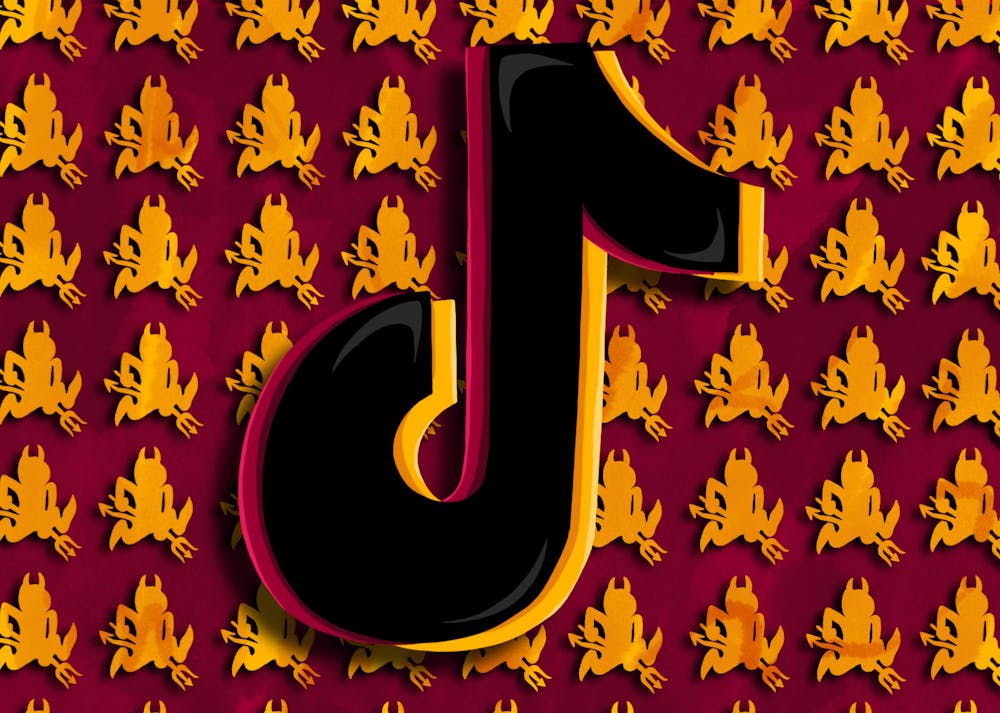Social media has influenced our lives in more ways than can possibly be enumerated. The way we shop, eat, work, sleep, think and of course, socialize. That's just a fact.
In the years prior to the pandemic, I'd largely stayed off of social media, my activity was restricted to the occasional Instagram selfie and Facebook repost. But amid the initial wave of shutdowns, social media was the primary way I stayed connected with my friends.
When I spent ample time on these platforms, I clearly saw the differences between my peers and myself. I couldn't help but feel so far behind, socially and stylistically, and I needed to bridge the gap. I had always struggled to connect with my classmates, feeling as though I was one step behind.
While my peers were learning how to dress, do their hair and present themselves to the world, I lacked the knowledge to do the same. Instead, I would show up to school in my faded black hoodie with a rainbow print lion from the zoo paired with brown leggings.
I came to realize the solution to my problems of feeling left out lay in a social platform I'd tried so hard to avoid —TikTok. The app started to gain traction during my senior year of high school. My friend group swiftly divided itself into two groups — those who were on the app and those who were not.
Conventionally attractive people lip-syncing and miming dance routines seemed like it would do more in the way of clogging up my phone's memory rather than provide legitimate entertainment.
So as half of my friends practiced the Renegade in the hallways, I rolled my eyes, waiting for the fad to pass.
But as TikTok continued to grow, downloading the app seemed unavoidable. It felt like everyone in my generation was on the platform, and once again, I was the odd one out.
So, I caved.
I downloaded the app in the summer of 2021, expecting that I'd never really use it — I was wrong.
TikTok had a far greater impact than I could have foreseen. Now, it was easier than ever to fit in with my peers.
I finally learned to put faces to the names that my friends were always dropping and understood why everyone was so obsessed with that Newt guy.
More importantly, I discovered influencers like Jessica Vu, Eve-Lily, Carla Rockmore and Glamzilla, all of who taught me to boldly embrace my personality and style. I learned about undertones and eye shapes, how to color coordinate and create a silhouette.
The little jokes and references permeated my daily vernacular, and I would constantly bring up my daily usage of the app — "I saw that on TikTok," or "Do you know that TikTok trend?"
TikTok's viral audios revolutionized the way that I listen to music and have spurred trends. I've found myself singing snippets of songs, like Doja Cat's "Woman" and Lil Nas X's "MONTERO (Call Me By Your Name)," all popularized on TikTok and are song out of my typical music tastes.
READ MORE: How TikTok remixes breathe new life into the music industry
It made me feel as if I was a part of pop culture, like a living, breathing, part of the zeitgeist.
The fact that I could now joke around with and understand what everyone was talking about amazed me.
Soon enough, I had become what I'd mocked, but I didn't mind.
Just a year later, I can see the impact that TikTok's had on me. Everything from my sense of style, to makeup, to what I cook, has taken considerable influence from the app.
While I was initially drawn to it as a means of socialization, the silly little clock app has guided me through the most tumultuous phase of life. I've learned makeup tricks, skincare tips to calm my eczema, new recipes and more.
For the first time, I learned how to do my hair and pick out clothes that flatter me, and now I've developed my own sense of style. I no longer just blindly follow others' advice; I've used the knowledge I've picked up to support my own originality.
Although it's easy to find myself swiping through videos and comparing myself to what seems like conventionally attractive people doing the bare minimum to become famous, it's important to remind myself to be a critical consumer.
The current narrative is that social media creates insecurity, but with moderation and mindful scrolling, it doesn't have to.
When it comes to TikTok content, it is certainly important to take stock of our own boundaries and know where to draw the line. What has helped me is being selective with which content I choose to engage with and knowing when to put down my phone and walk away.
No matter how much TikTok helps with socialization and peer validation, it's important to recognize the app for what it is — a tool, not a replacement.
Reach the reporter at srkrish5@asu.edu and follow @shradhakrish on Twitter.
Like The State Press on Facebook and follow @statepress on Twitter.




